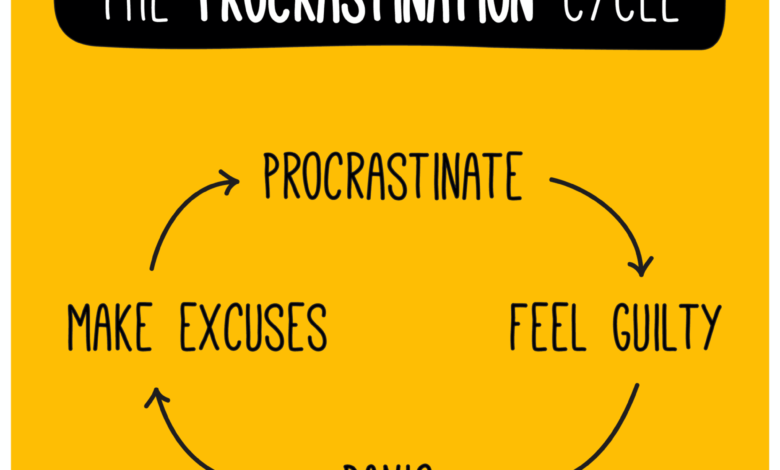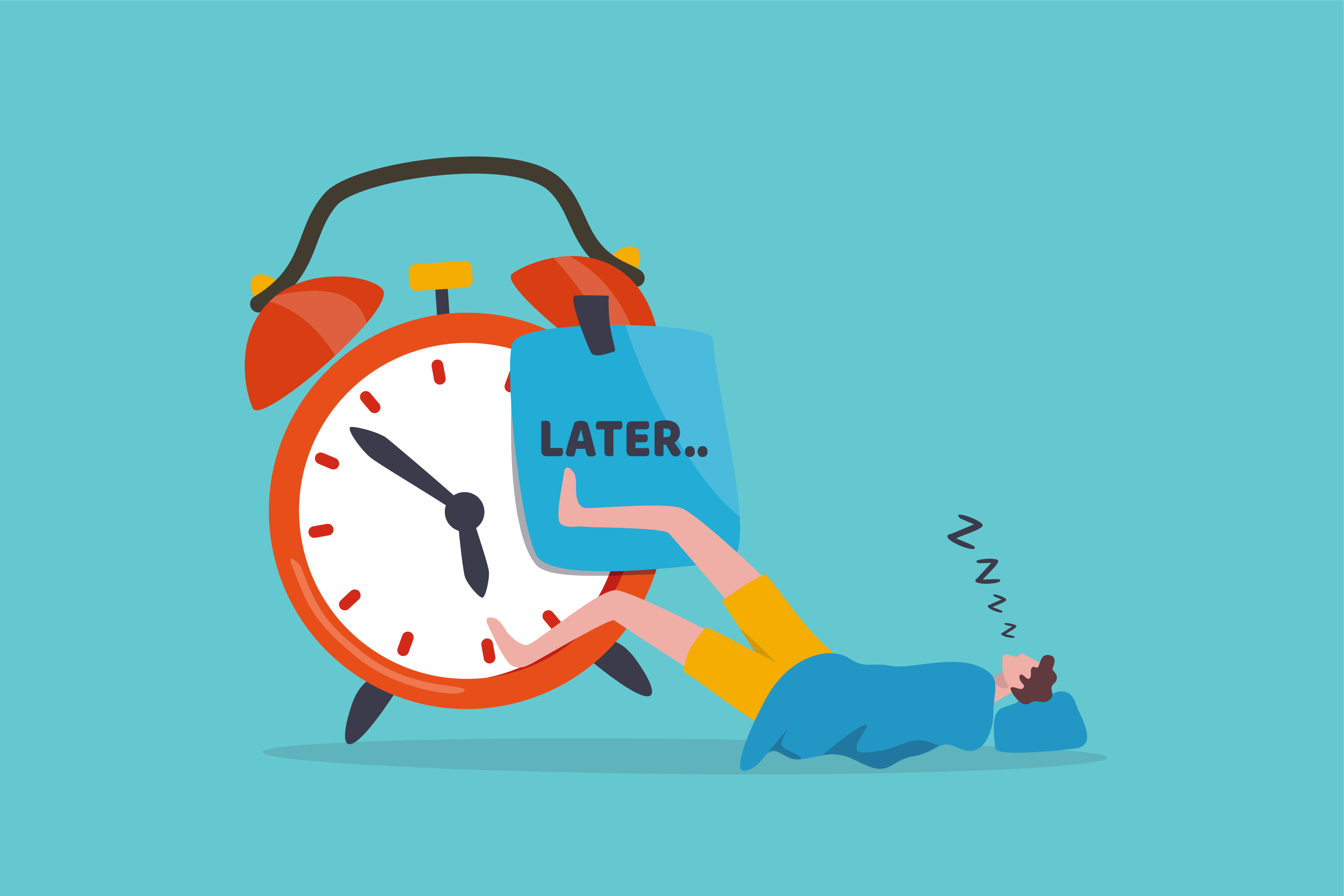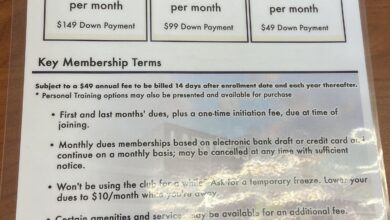Procrastinate Procrastination: Unleash Your Productivity!

To beat procrastination, start by breaking tasks into smaller, manageable parts. Set clear, achievable goals for each day.
Procrastination is a common hurdle that many of us face, often leading to stress and a pile-up of tasks. This challenge, though daunting, can be overcome with the right strategies. Tackling procrastination requires a proactive approach, focusing on organization and motivation.
Creating a structured plan and adhering to it can significantly reduce the tendency to delay tasks. By prioritizing tasks, setting deadlines, and rewarding progress, you can enhance productivity and minimize the urge to procrastinate. It’s about making tasks less overwhelming and more approachable. Implementing these strategies can transform the way you work, leading to better efficiency and less stress. Remember, the key to overcoming procrastination lies in taking the first step and maintaining momentum.
The Procrastination Plague: Its Impact On Productivity
Procrastination spreads through daily habits, silently killing productivity. It’s a common issue affecting many people. Understanding its impact is crucial for personal and professional growth.
Symptoms Of Chronic Procrastination
Recognizing these symptoms is the first step towards recovery:
- Missed Deadlines: Work is often delayed or incomplete.
- Lack of Focus: Tasks are started but rarely finished.
- Chronic Stress: Constantly feeling overwhelmed and anxious.
- Poor Performance: Quality of work decreases.
- Low Energy: General feeling of lethargy towards tasks.
The Cost Of Delaying Tasks
Procrastination has real consequences:
| Impact Area | Cost |
|---|---|
| Time | Lost hours turn into lost days. |
| Money | Missed opportunities mean financial loss. |
| Reputation | Trust fades when tasks are not done. |
| Well-being | Stress increases, happiness decreases. |
| Growth | Skills stagnate without practice and effort. |

Credit: tinybuddha.com
Root Causes: Why We Procrastinate
Understanding why we procrastinate helps us beat it. Let’s explore the common roots of this widespread issue.
Fear Of Failure
The fear of not succeeding paralyzes many. It stops us from starting tasks. We worry about not meeting expectations. To avoid potential disappointment, we delay work. This fear often stems from past experiences or self-imposed pressure.
Lack Of Motivation
Sometimes, we just don’t feel like doing anything. Our drive dips. Tasks seem less important. This lack of motivation can come from not seeing the value in work. It can also come from feeling overwhelmed. Finding small, valuable aspects of tasks can combat this.
Perfectionism Paralysis
Wanting everything to be perfect can halt progress. The desire for perfection makes starting scary. We fear making mistakes. This can lead to endless planning. Recognizing that perfection is unattainable often helps us move forward.
Psychological Perspectives On Procrastination
Psychological Perspectives on Procrastination explore why we delay tasks. Experts believe our minds play a big role. We will look at dopamine, anxiety, and self-esteem to understand procrastination better.
The Role Of Dopamine
Dopamine impacts procrastination. It’s a brain chemical that rewards us. Fun activities release dopamine. This can lead us to choose pleasure over work. Breaking tasks into small, enjoyable parts can trick our brain into starting.
Anxiety And Procrastination
Anxiety often leads to putting things off. The thought of a task can trigger stress. This stress can freeze us up. Finding ways to reduce anxiety, like short breaks or mindfulness, can help us start tasks.
Procrastination And Self-esteem
Low self-esteem can cause delays. We may fear failure. This fear can stop us from even beginning. Setting realistic goals can boost confidence. Achieving these goals can help us overcome procrastination.
Strategies To Overcome Procrastination
Do you delay tasks until the last minute? You’re not alone. Many people struggle with putting off their work. But fear not! Effective strategies can help you beat procrastination. Let’s explore these methods.
Time Management Techniques
Manage your time well to beat delay. Here are key techniques:
- Use a planner: Track your tasks and deadlines.
- Set timers: Work in focused bursts.
- Limit distractions: Turn off notifications while working.
Setting Realistic Goals
Setting achievable goals is crucial. Follow these tips:
- Be specific: Clear goals guide your focus.
- Stay realistic: Set goals within your reach.
- Write them down: This makes your goals tangible.
Breaking Tasks Into Smaller Steps
Large tasks can seem daunting. Make them manageable:
| Task | Steps |
|---|---|
| Write a report | Research, outline, draft, edit. |
| Clean the house | Pick up, dust, vacuum, mop. |
Technological Tools To Boost Productivity
Struggling with procrastination can be a tough battle. Technology, however, offers some savvy solutions. Embrace these tools and say goodbye to wasted time.
Apps That Fight Procrastination
Productivity apps are game-changers. They help organize tasks and set reminders. Here’s a quick list:
- Todoist: Keeps your tasks in check
- Be Focused: Breaks work into short intervals
- Forest: Plant trees while focusing on tasks
Using Social Media Wisely
Social media can be a trap. Use these tips:
- Set specific times for checking feeds
- Turn off notifications during work hours
- Use site blockers to avoid distractions
The Pomodoro Technique
The Pomodoro Technique is a time management method. It uses a timer to break work into intervals, traditionally 25 minutes in length, separated by short breaks. Here’s how to implement it:
- Choose a task to work on
- Set the Pomodoro timer (25 minutes)
- Work on the task until the timer rings
- Take a short break (5 minutes)
- After four “Pomodoros,” take a longer break (15-30 minutes)

Credit: www.apu.apus.edu
Creating A Productive Environment
A productive environment boosts work efficiency and battles procrastination.
Organizing Your Workspace
Clean desks set the stage for focused work. Start by removing distractions. Keep only essential items. Use drawers and organizers for supplies. A tidy space promotes clear thinking.
The Impact Of Clutter
Clutter causes stress and delays. It distracts and overwhelms. A clutter-free zone means fewer obstacles. Your mind stays on tasks, not messes.
Optimizing Your Work Schedule
Structure your day with a consistent routine. Break tasks into small, manageable chunks. Schedule breaks to refresh. Align tough tasks with your peak energy times.
The Power Of Mindset In Battling Procrastination
The mind is a powerful tool in overcoming procrastination. Changing how we think can change how we act. Let’s explore how mindset influences our ability to start and finish tasks.
Embracing A Growth Mindset
A growth mindset sees challenges as chances to improve. Believe in learning and growth. This belief makes starting tasks less daunting.
- Replace “I can’t” with “I’ll learn”.
- See each task as a step to get better.
- Focus on the progress, not perfection.
Reframing Your Tasks
View tasks in a new light to find motivation. Break them down to make them less overwhelming. Use these tips:
| Before | After |
|---|---|
| I have to | I get to |
| This is too hard | This will make me stronger |
Celebrating Small Wins
Small wins build momentum. Celebrate every success, no matter how small. This encourages you to keep going. Start with:
- Set mini-goals.
- Achieve and acknowledge them.
- Enjoy your progress.

Credit: procrastination.com
Success Stories: Overcoming Procrastination
Everyone battles with procrastination. Yet, stories of those who overcome it inspire many. We celebrate both famous and everyday individuals who say no to delay. Their journeys offer priceless lessons.
Famous Figures Who Beat Procrastination
Think of Steve Jobs, Apple’s mastermind. He transformed a garage idea into a tech giant. J.K. Rowling switched from delay to penning Harry Potter. Their victories over procrastination are legendary.
Everyday Heroes: Real-life Examples
- John, a teacher, faced his paper pile-up and won.
- Emma, a nurse, started her dream bakery after years of waiting.
- Alex, a student, beat procrastination and achieved top grades.
What We Can Learn From Success Stories
Success tales teach us key lessons:
- Small steps lead to big changes.
- Focus on goals can defeat delay.
- Support from friends and family helps.
Frequently Asked Questions
How Do You Procrastinate?
To procrastinate, people often delay tasks by engaging in less urgent activities, such as browsing social media, watching TV, or indulging in hobbies. They prioritize momentary pleasure over important responsibilities, leading to last-minute rushes to meet deadlines.
How Bad Is Procrastination?
Procrastination can significantly hinder productivity and lead to stress, missed deadlines, and potential opportunities lost. It often results in lower quality work due to rushed completion.
Why Do Procrastinators Procrastinate?
Procrastinators often delay tasks due to fear of failure, lack of motivation, or feeling overwhelmed. They might also seek the thrill of last-minute work. This habit can stem from poor time management skills and the desire for perfection, leading to a cycle of avoidance and stress.
What Is Procrastination How Do You Stop Procrastinating?
Procrastination is delaying tasks intentionally. To stop procrastinating, set clear goals, break tasks into smaller steps, and eliminate distractions. Establishing a routine and rewarding progress can also boost motivation and productivity.
Conclusion
Wrapping up, tackling procrastination is about small, decisive actions. Embrace effective time management and set realistic goals to overcome the urge to delay. By prioritizing tasks and breaking them into manageable chunks, productivity becomes achievable. Remember, the power to change lies within you—start now, and watch your efficiency soar.




